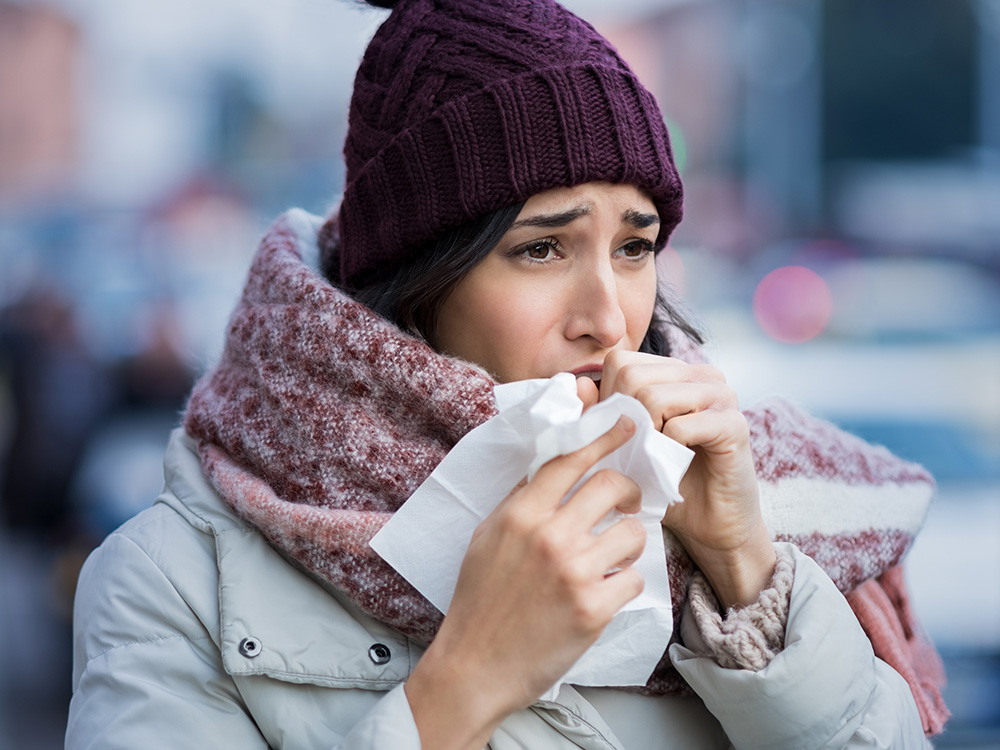I’ve only recently realized that there’s more than cold weather and busy schedules working against my exercise regime during this time of year. It’s also the cold and flu season. Although many hardcore exercise enthusiasts will simply work through their illness, is it always the best decision to be working out while sick? When is it safe to work out and when should you take some time off? Also, are there any ways you should modify your workouts to encourage a speedy recovery?
Working Out While Sick – Should I Continue?
According to Dr. Edward R. Laskowski, of the Mayo Clinic, a general rule of thumb is that moderate exercise is usually safe as long as your symptoms are “above the neck.” This include symptoms that accompany the common cold, such as a runny nose, nasal congestion, sneezing or minor sore throat. These things don’t have to derail your exercise routine, provided you feel OK energy-wise.
In fact, a series of studies conducted at Ball State University showed that not only will a minor cold not impair your performance, but working out while sick (moderately of course) might actually help you recover more quickly.
Regular exercise, accompanied by a good night’s sleep, can be a powerful boost to your immune system. Not only does the act of exercising itself help white blood cells, which fight disease, travel more quickly through your body, but it also affects the hormones that control your sleep cycles. So exercise indirectly helps you sleep more deeply, allowing your immune system to repair itself more effectively.
When to Take a Break
Conversely, “below the neck symptoms” like chest congestion, a hacking cough or digestive problems shouldn’t be ignored. A fever is another symptom you shouldn’t try to exercise through. Listen to your body and give it a rest.
If you’re experiencing muscles soreness or fatigue, take the day off as well, since working out while sick will only worsen your symptoms. If you have any doubts, discuss your symptoms and your routine with your doctor.
Getting Back in the Game
Just because your fever has passed and you only have a slight sniffle, it doesn’t mean you should launch back into your normal routine immediately. When you’re still dealing with the minor “above the head” symptoms, keep your exercise to a moderate level even if that means lowering your regular intensity. If you normally run, you may need to jog or even walk until you are completely recovered.
You may also need to cut back on the length of your workouts. Doctor Howard LeWine, of Harvard Health Publications, warns that viral infections like the flu can weaken the heart, leaving it susceptible to damage by strenuous exercise. Stop if you feel exhausted or have difficulty breathing. Be especially careful if you start to develop tightness and coughing in your chest.
Exercise is an important part of your health – especially during cold and flu season. Have you struggled to maintain your workout schedule despite a cold or flu?
Sources
http://www.mayoclinic.com/health/exercise/AN01097
http://www.nytimes.com/2008/12/25/health/nutrition/25best.html?_r=0
http://healthyliving.msn.com/diseases/cold-and-flu/working-out-after-flu-1

